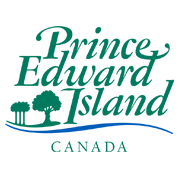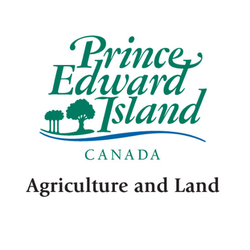
Programme de sécurité alimentaire communautaire de l’île
En résumé
- Montant maximum : 10,000 $
- Date de fermeture : May 15, 2025
- Agriculture, foresterie, pêche et chasse
- Services d'enseignement
- Soins de santé et assistance sociale
- Autres services (sauf les administrations publiques)
- Administrations publiques
- Île du Prince-Édouard
- Toutes les structures légales
- Toutes les échelles de revenus
- Toutes les tailles d’organisation
- Tous les groupes
Aperçu
Financement allant jusqu’à 10 000 $ pour couvrir 100 % des coûts des projets qui aident les résidents de l’Île-du-Prince-Édouard à bénéficier de régimes alimentaires sûrs, acceptables sur le plan culturel et adéquats sur le plan nutritionnel grâce à un sy
Activités financées
Admissibilité
Pour être admissible à cette subvention, les critères suivants doivent être remplis par les demandeurs :
- Le demandeur doit être une Première Nation Mi’kmaq ou un autre groupe autochtone reconnu.
- Le demandeur peut être un organisme à but non lucratif possédant un numéro d'enregistrement de charité, un numéro d'entreprise, et/ou un numéro d'incorporation.
- Les organisations issues de l'industrie agricole, les clubs et les associations sont éligibles.
- Les coalitions communautaires, réseaux, gouvernements municipaux, écoles, et centres de la petite enfance peuvent également soumettre une demande.
- Il est nécessaire que les organisations aient la capacité d'entamer un accord juridique pour recevoir les fonds.
- Les projets présentés doivent être associés à une organisation reconnue, les individus seuls ne sont pas éligibles.
- Lorsqu'un projet est collaboratif entre plusieurs groupes, une lettre de soutien des organisations partenaires doit être fournie.
Qui est admissible?
Le programme de Sécurité Alimentaire des Communautés de l'Île est conçu pour soutenir les initiatives locales visant à améliorer la sécurité alimentaire communautaire. Seules certaines organisations et groupes sont éligibles à cette subvention selon des critères spécifiques énumérés ci-dessous.
- Premières Nations Mi’kmaq et autres groupes autochtones.
- Organisations à but non lucratif disposant d'un numéro de charité enregistré, d'un numéro d'entreprise et/ou d'un numéro d'incorporation.
- Organisations du secteur agricole, clubs et associations.
- Coalitions communautaires, réseaux, gouvernements municipaux, écoles, centres de la petite enfance.
Qui n'est pas admissible
Cette subvention exclut certaines entreprises et industries en raison de leur statut ou de leur activité principale. Les restrictions visent à garantir que les fonds soient dirigés vers les initiatives locales et communautaires qui répondent aux besoins de sécurité alimentaire.
- Entreprises individuelles non affiliées à une organisation.
- Organisations à but lucratif cherchant à utiliser les fonds pour des activités de levée de fonds ou de concours.
- Entreprises impliquées dans la production aquaponique, aquaculture, algue, poisson et fruits de mer.
- Organisations cherchant à couvrir les coûts de fonctionnement normal et permanent.
- Entreprises dont les projets incluent les jardins communautaires en plein air après le 1er septembre de chaque année.
- Organisations cherchant à couvrir les coûts liés aux infrastructures et au capital.
Dépenses admissibles
Cette subvention soutient des initiatives visant à renforcer la sécurité alimentaire communautaire à travers des activités éducatives et de sensibilisation. Les projets éligibles encouragent la promotion de la nutrition, la collaboration communautaire, et le développement d'offres alimentaires durables.
- Éducation à l'alimentation saine.
- Implémentation de formations sur la littératie alimentaire pour le personnel des services alimentaires et/ou des achats.
- Développement d'un menu de déjeuner saisonnier durable pour les écoles ou centres de la petite enfance utilisant principalement des ingrédients locaux.
- Développement et mise en œuvre de modules de formation ou d'ateliers sur la littératie alimentaire.
- Installation de réfrigérateurs communautaires.
- Achat de graines et autres coûts pour établir et maintenir des jardins communautaires/écoles, serres ou jardins intérieurs (saisonniers).
- Repas communautaires.
- Événements organisationnels (repas lors d'événements promouvant la nourriture locale).
- Matériaux, fournitures et petits équipements.
- Coûts liés à la prestation de formations (par exemple, location de salle, fournitures de formation, impression et photocopie).
- Frais professionnels (liés uniquement au projet).
- Initiatives de promotion et de marketing.
- Frais de déplacement (uniquement dans la province).
- Location d'installations (excluant les espaces déjà possédés par les organisations impliquées dans le projet).
Critères de sélection
Les projets soumis dans le cadre du Programme de Sécurité Alimentaire Communautaire de l'Île sont évalués et sélectionnés selon des critères qui assurent leur pertinence et impact potentiel.
- La capacité de l'organisation à déposer des demandes complètes et à temps.
- L'impact anticipé sur la sécurité alimentaire communautaire, notamment en augmentant l'accès à des aliments locaux abordables.
- L'apport potentiel du projet à la santé et la sécurité alimentaire communautaire.
- La promotion et l'amélioration de l'autonomie et de la collaboration communautaire.
- La complétude et le détail des informations fournies dans le dossier de candidature pour évaluer le mérite et l'impact potentiel.
Comment appliquer
Prepare Application
- Ensure eligibility by reviewing program guidelines and criteria.
- Organize all necessary documentation including a detailed project proposal and a budget plan.
- Acquire letters of support if collaborating with other organizations.
Submit Application via Email
- Compose an email including all required documents as attachments.
- Use "Island Community Food Security Program" as the subject line.
- Send your email to foodsecurity@gov.pe.ca.
Submit Application via Regular Mail (Optional)
- Print all required documents and ensure all forms are signed.
- Mail your application to: PEI Department of Agriculture, 11 Kent Street, PO Box 2000, Charlottetown PE C1A 7N8.
Informations supplémentaires
Voici des informations supplémentaires pertinentes pour cette subvention :
- Le financement couvre 100 % des dépenses admissibles jusqu'à 10 000 $ par projet, avec possibilité de montants supplémentaires selon les cas évalués individuellement.
- Un suivi des dépenses précises et une soumission de documents, tels que des formulaires de réclamation et des copies de factures payées, sont requis à la fin du projet.
- Les projets seront évalués en fonction du mérite et de l'impact selon l'ordre d'arrivée des demandes.
- Une évaluation complète du programme est prévue pour assurer la réalisation des objectifs et évaluer la pertinence d'une reconduction.
- Les demandes peuvent être soumises par courrier électronique ou postal à l'attention de l'agent de programme.
Contacts
Questions fréquentes sur le programme Programme de sécurité alimentaire communautaire de l’île
Qu'est que le Programme de sécurité alimentaire communautaire de l’île?
Quel est le montant de l'aide financière qui peut être reçue?
Quelles dépenses sont admissibles pour Programme de sécurité alimentaire communautaire de l’île?
Quelle est la date limite pour appliquer?
Le Programme de sécurité alimentaire communautaire de l’île est-il une subvention, un prêt ou un crédit d'impôt?
Qui est sont les bailleurs de fonds du Programme de sécurité alimentaire communautaire de l’île?
Qui est admissible au programme Programme de sécurité alimentaire communautaire de l’île ?
Qui puis-je contacter pour plus d'informations sur le Programme de sécurité alimentaire communautaire de l’île?
Où le programme Programme de sécurité alimentaire communautaire de l’île est-il disponible ?
D’autre aides financières de ce type
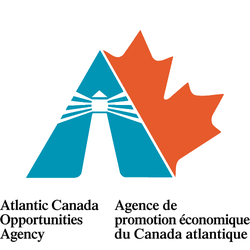
Fonds d’innovation de l’Atlantique – entreprises du secteur privé
Agence de promotion économique du Canada atlantique (APECA)
Incitatif pour véhicules électriques
Gouvernement de l'Île-du-Prince-Édouard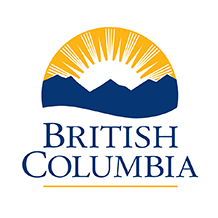
Organisations caritatives soutenues par le fonds
Fiducie du Fonds de services communautaires des employés du gouvernement de la Colombie-Britannique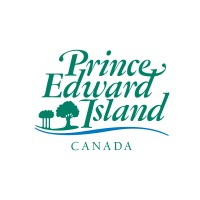
Subvention pour les repas communautaires des aînés
Ministère du Développement social et des Aînés de l’Île-du-Prince-Édouard
Grow the Herd Pilot Program
Gouvernement de l'Île-du-Prince-Édouard
Outils En Ligne Pour Exportation (OELE)
SavoirSphère
Programme de services de diversification des modes d’occupation des sols
Gouvernement de l'Île-du-Prince-Édouard
Programme des cultivateurs de l'avenir
Gouvernement de l'Île-du-Prince-Édouard
Développement de l’industrie des produits biologiques — Équipement spécialisé
Gouvernement de l'Île-du-Prince-Édouard